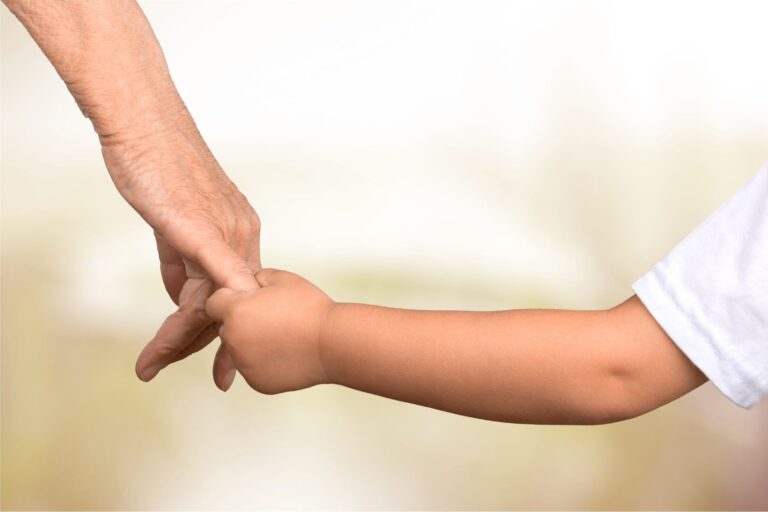Science has shown us that there are hereditary links that pass the disease of addiction down from parents, to children, and even grandchildren. We’ve also learned a lot about the effects of drugs on children who grow up with parents with untreated addiction and the mental, physical, psychological toll that kind of exposure can take on a child. With all of these extensive studies, we’ve concluded that children of people with substance use disorders are much more likely to struggle with addiction as well. There are preventative steps that can be taken to protect these children, but first, it’s important to look closely at all of the factors that can lead a young person to substance misuse in their early years as well as into adulthood.
Addiction Runs in the Family
The National Council on Alcoholism and Drug Dependence (NCADD) has determined that one of the biggest risks for future addiction in a child is their family history. Research has shown that the genetic links can predispose some children to addiction, especially when coupled with an environment where drug use is prevalent. There is not one specific “addiction gene”. In fact; there are various complex groupings of genes that can carry addiction from generation to generation. These gene groupings can affect the way their body processes drugs and alcohol, while another one affects the way nerve cells signal to each other and control their function and activity. This is why scientists are working hard to figure out all the various groupings of genes that can broadly determine what characteristics may cause someone to be more prone to a substance use disorder.
Environmental Factors
Growing up in a household or community where there is rampant drug use can also increase the chances that a child develops an addiction. A family that has a lot of dysfunction, including frequent aggression and conflict, is a major risk factor. Highly argumentative households where one or both parents suffer from a mental illness such as depression or other psychological issues can also increase this risk. Many children growing up in environments like these that also have a parent who struggles with a substance use disorder tend to deal with limited social skills and hindered self-esteem. A support system is very essential for children as they grow and learn about the world around them. Without supportive parents and family around them, they can begin to have difficulty dealing with their emotions. Some children will develop psychiatric disorders due to this environment and may seek out substance use in order to cope with their stress. When in contact with friends or family who regularly do drugs, it opens their access to substances, leading to easier chances of misuse. This is one of the leading causes of dual diagnosis in minors, which is where someone is also dealing with a mental illness as well as addiction.
Helping At-Risk Children
Children who are more predisposed to addiction due to both genetic and environmental factors need attention and guidance and should be a priority in society. Unfortunately, due to the stigma that hangs over addiction and mental illness, many children who are living in areas with socio-economic disadvantages and few helpful resources seem to fall to the wayside most often. Addiction can affect every walk of life, from the poorest to the most privileged and wealthy. Families with drug use issues are usually not able to give children the security and reassurance for them to become successful adults, and most often they end up following in their parents’ footsteps.
It’s important for parents to speak with their children about the issues that are going on in the family, instead of sweeping addiction under the rug. Parents owe it to their children to be transparent about the future of their health and well being. A child that deals with a lot of stress and confusion is more likely to go down the wrong path. Prevention is key!
Prevention as a First Step
Selective prevention strategies have been developed to help specific children who are at a higher risk of addiction. These programs implement knowledge, attitudes, and skills that children will need in order to make better choices from themselves as they mature. These programs are classroom-based where children will be presented information on how they can better themselves and their lives, giving them reassurance and encouragement that they may not receive at home.
Classroom programs include life and social skill development among children and their peers where they can interact together as a community. There is also a focus on developing social norms that emphasize not using drugs. With peer leaders conducting these programs, it can also make children feel more comfortable knowing that someone that is close to their community is influencing them to choose the best path for their futures.
Environmental strategies have also been shown to be effective in supporting at-risk children. It’s a broader approach than individualized classrooms but has been shown to help many communities. Using communication and education programs within a specific area, prevention planners are able to pinpoint physical, social, and cultural factors that may lead to substance use within an area. Combining this with a comprehensive approach, community members can be influenced to protect children from becoming victims of external factors that lead to addiction.
With enforcement of community efforts to help at-risk youth, the issue of addiction within neighborhoods can be addressed in the most constructive way. Combining community efforts with educational programs that help spread messages of awareness and prevention can start the conversation in households where addiction may be difficult to discuss. Adults are responsible for taking care of the younger generation. Children look to their parents and elders for support and guidance. With the nationwide epidemic of addiction killing young people at an alarming rate, it’s crucial that we take steps to help prevent future victims.

